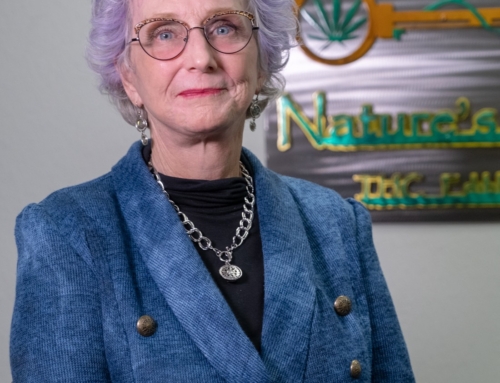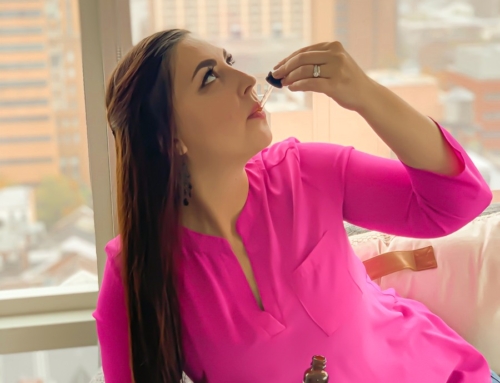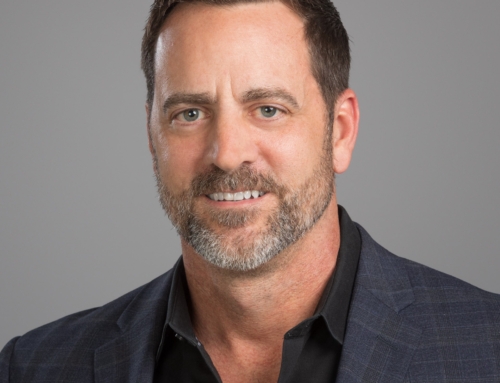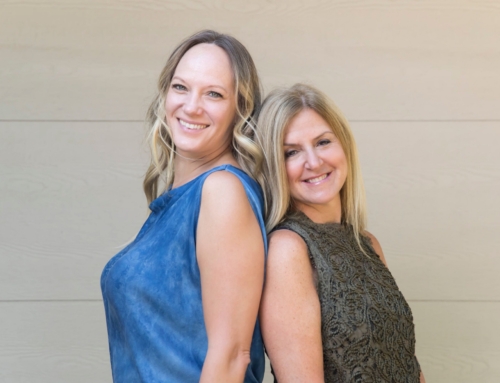Social influencer Barinder Rasode’s quintessential advocacy for Canadian values is nationally renowned. Her leadership, mastery of complex subjects, and innovation guide a plethora of issues that impact the everyday life of Canadians. A strong believer in creating cohesion and synchronicity, Barinder leads by example to propel a team’s natural strengths to levels of exceptionality that help shape objectives, narratives, and discourse.
Currently, Barinder is the CEO of Grow Tech Labs. Based in Vancouver, Grow Tech will reaffirm British Columbia (BC)’s status as a global cannabis capital by attracting a new and diverse generation of sector leaders from across Canada and around the world through the delivery of world-class programs that are rooted in innovation, entrepreneurship and mentorship.
Barinder has extensive experience working with senior levels of government, stakeholders, and the private sector to find common ground to encourage respectful, informed dialogue on diverse issues to tackle emerging challenges facing Canada’s future.
She founded National Institute of Cannabis Health and Education (NICHE) to promote evidence-based research and education about cannabis, and formerly served as CEO and Board President.
A fierce advocate of women’s rights, Barinder is the Co-Founder and Advisory Committee Chair for a unique series of conferences, SheTalks, each featuring 16 inspirational women who share stories of leadership, transformation, innovation, and how to succeed in today’s rapidly changing world. Barinder also hosted SheTalks Radio, a weekly show that ran on Roundhouse 98.3 FM.
Previously, Barinder served two terms as an elected Councillor for the City of Surrey, taking leadership roles in public safety and transportation. She has also served on the Board of Directors for Fraser Health Authority, which provides governance and vision for the largest health organization in British Columbia. In her appointed role, she worked with senior management to establish overall strategic direction, review long-term plans, and ensure appropriate community consultation.
Among her many accolades, Vancouver Magazine ranked her as one of the 50 most powerful people in Vancouver.
Thank you so much for doing this with us! Can you tell us the “backstory” about what brought you to the cannabis industry?
The backstory of what brought me to the cannabis industry was my friend’s mother who had cancer, and how she was using cannabis to manage her pain. But more fascinating to me was how her father was able to relieve his anxiety with his vape pen. I started to do more research on both the medicinal uses of cannabis but also then looked at the impacts on community, with the implementation of legalization in the U.S. in terms of reduction on opioid use, reduction on crime, and overall promise.
Can you share the most interesting story that happened to you since you began leading your company? Can you tell us what lesson you learned from that?
The most interesting story that’s happened since I have been leading Grow Tech Labs is that the cannabis industry (right now) can be defined as being very uncertain. There are lots of consequences of the regulations that were unintended, and I think the lesson that I learned from that was to be fluid and to be able to pivot. To be too entrenched or married to your plan sometimes isn’t in the best interest of a company, so you have to be very aware of circumstances that dictate the direction your company will take. Because the cannabis industry (in Canada) is so highly regulated, regulations are really important.
Can you share a story about the funniest mistake you made when you were first starting? Can you tell us what lesson you learned from that?
I’ve made many! Too big, too fast. Probably renting space but having nobody to fill it, and then filling certain positions that were maybe premature for the company. The lesson for me is that when you’re a planner and are very attached to implementation, it’s really important to make sure that you have the appropriate resources to scale as quickly as you know you need to. Patience is really important.
Do you have a funny story about how someone you knew reacted when they first heard you were getting into the cannabis industry?
The funniest story around my involvement in the cannabis space is how cool my adult children thought this was, and how much anxiety I had in figuring out how I was going to tell my parents. I get a lot of raised eyebrows and people have actually said to me, “Aren’t you a little bit too old for this?” So ageism definitely kicked in, and I thought that was quite funny.
None of us are able to achieve success without some help along the way. Is there a particular person who you are grateful towards who helped get you to where you are? Can you share a story?
Definitely. I don’t believe anybody can achieve success without help. I think there are a lot of people who have led the way. I’m very grateful to many people, but one of the ones I’m most grateful for is Jamie Shaw. She’s an activist who welcomed me with open arms, and has really helped guide my participation in the cannabis industry because as a newcomer, it’s really important to respect not only the heritage and the legacy, but to be able to learn how to do things within a certain culture, and she definitely gave me the cultural knowledge I needed to do this job well.
Are you working on any new or exciting projects now? How do you think that will help people?
I’m working on two very exciting projects. One is the Noble Cannabis Park, to provide an equal playing field and advantage to craft and micro growers in the province of B.C. Another one – as I’m very committed to education – is TruHavn. TruHavn is a platform to create dialogue on the healing properties of psychedelics. I’m very excited to be working on those two projects.
Ok. Thank you for all that. Let’s now jump to the main core of our interview. Despite great progress that has been made we still have a lot more work to do to achieve gender parity in this industry. According to this report in Entrepreneur, less than 25 percent of cannabis businesses are run by women. In your opinion or experience, what 3 things can be done by a) individuals b) companies and/or c) society to support greater gender parity moving forward?
One would hope that in 2020, gender parity discussion would be a no-brainer. Sadly, it’s not. Not only are less than 25% of cannabis business run by women, even fewer women are represented on corporate boards. Also, since we elect less women to office, there are less women on the regulatory side. In my opinion, the things that can be done to move gender parity forward are:
- Women can put their hand up, stand their ground, and not devalue themselves; negotiate more once they get there to bring other women with them. For colleagues who are males, for them to not only recognize and advance women, but also to step back when they realize that there’s too many men in leadership positions or even things like panels.
- For companies, it’s important to showcase women through media, marketing, branding, as well as leadership positions. And I think companies moving forward should look at accommodations to keep good women in good positions. The time for work-life balance support for families and other accommodations are important. And, companies need to put resources into making sure that if a woman is ready – but might need to polish up on some skills – that they provide funding and training to do that.
- As a society, our collective voice has to remain loud. We have to call out “manels.” We have to call out corporations who don’t have women on boards. We have to call out government for not making this a part of the checklist when they’re looking at an industry that is regulated. And also provide funding for women-led initiatives.
You are a “Cannabis Insider”. If you had to advise someone about 5 non intuitive things one should know to succeed in the cannabis industry, what would you say? Can you please give a story or an example for each.
I wouldn’t actually call myself a “cannabis insider.” I’m actually quite new to the industry and I’ve been quite humbled by how warm I’ve been embraced. I think there are some non-intuitive things that I learned but was taught in a very loving way. One of them is quite simple: to use the word “cannabis” and not “marijuana” or “weed.” The second is not to make assumptions about people’s cannabis use being recreational when in fact it may be medicinal, and really, none of our business and not a question to ask. There’s etiquette around consuming cannabis, whether it’s a smoke circle, a vape pen, or edibles. It’s not polite to overconsume. It’s polite in a smoking circle to pass the joint to the right and to make sure that you’re not consuming when you’re sick and not to be a hog, and to bring something to the circle when you join. Don’t just enter; wait to be asked. And I think that overall, any jokes about any of the stigmas or myths that exist out there are totally not okay, as funny or light-hearted as they may seem.
Can you share 3 things that most excite you about the cannabis industry?
The things that excite me about the cannabis industry are getting the legacy producers, processors, and brands into the regulated market (in Canada). B.C. has a strong history of people who were draft dodgers, who were undocumented workers, who formed colonies for survival; who have not only embraced the cannabis industry but who have taught so much about wellness. The second issue is the commitment that the cannabis plant has to the wellness of an individual but also the wellness of a society, as cannabis leads medical ailments and provides a good product for recreational use. The other thing that it is enabling is for a different type of person to come into the industry and to view wellness in a very different way.
Can you share 3 things that most concern you about the industry? If you had the ability to implement 3 ways to reform or improve the industry, what would you suggest?
The things that concern me about the industry are the fast and furious, pump-and-dump mentality. This is seen by some industry players as an opportunity to make money without really including the legacy players, and not having a commitment to good quality product. The other thing that concerns me is the over-regulation and the comparison to both alcohol and tobacco, which should not be made. The third thing is that if Canada doesn’t step up quickly, we’re at risk of losing lead by not only the U.S. but the European markets. I think the best way to improve all this is to make a clear, easy path for pre-legalization growers, for government to provide support for smaller business in the cannabis space, and to also recognize CBD as a natural health product.
What are your thoughts about federal legalization of cannabis? If you could speak to your Senator, what would be your most persuasive argument regarding why they should or should not pursue federal legalization?
N/A – Cannabis is legal in Canada.
Today, cigarettes are legal, but they are heavily regulated, highly taxed, and they are somewhat socially marginalized. Would you like cannabis to have a similar status to cigarettes or different? Can you explain?
No, cannabis should definitely not have any status either equivalent to, or in the same spear as cigarettes. There’s absolutely no comparison. Cigarettes don’t have any medicinal value. They have no economical development value. There’s no research – in fact, there’s counter research – to what cigarettes do to a human body.
Can you please give us your favorite “Life Lesson Quote”? Can you share how that was relevant to you in your life?
There’s just so many, but I think the one that’s most relevant for me in this space is: “Whether you think you can or you can’t, it’s true.” People have been very bold in this space. People before me, the advocates who’ve taken great risk no only with their livelihoods but also with the fear of persecution, so I think that that quote is true. Whether you believe you can or you can’t, that’s what comes true and that’s what a lot of people are experiencing now in the cannabis space.
You are a person of great influence. If you could inspire a movement that would bring the most amount of good to the greatest amount of people, what would that be? You never know what your idea can trigger. 🙂
I’ve participated in many movements, and I think that one of the things I’ve been thinking about recently of a movement that could do a great amount of good for a lot of people is taking a traditional, soft mentorship model, and implementing it into the workplace so that each person in a leadership role would have to give X number of hours to mentor somebody either in a different position within the organization, or a student. One of the things I’m learning the most when I’m hiring people is that professional training and academics is equally valuable to experience. And talent and experience can’t be developed until people are given opportunities, so I think it could be mandated that people in leadership and senior positions in an organization have to give X number of hours into doing some on-site training and mentorship. I think without that, we’re going to be looking at that same dynamic in terms of who’s making it into those positions, because it’s often people who know people, or it will be the same issue of people who are men who are more comfortable with promoting and hiring other men. It’s not a mass, sexy movement, but something that could be implemented very easily, and would have a great amount of good across the board.
Thank you so much for the time you spent with this. We wish you only continued success!









![“The potential to help people [in this industry] is enormous, but there’s still so much to learn.” – Ramon Alarcon, Witi](https://lakesideremedy.com/wp-content/uploads/2020/12/1thj5ekUyxQ69iLz1JJyODg-scaled-e1607882756286-500x383.jpeg)
